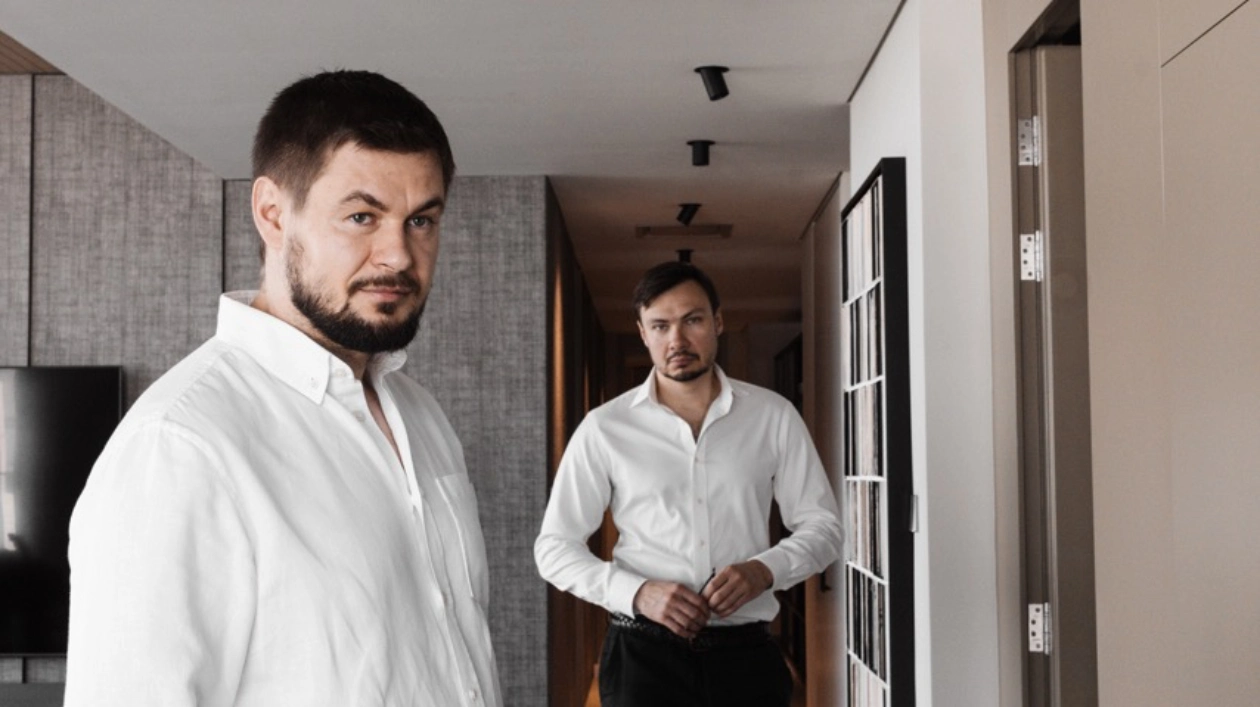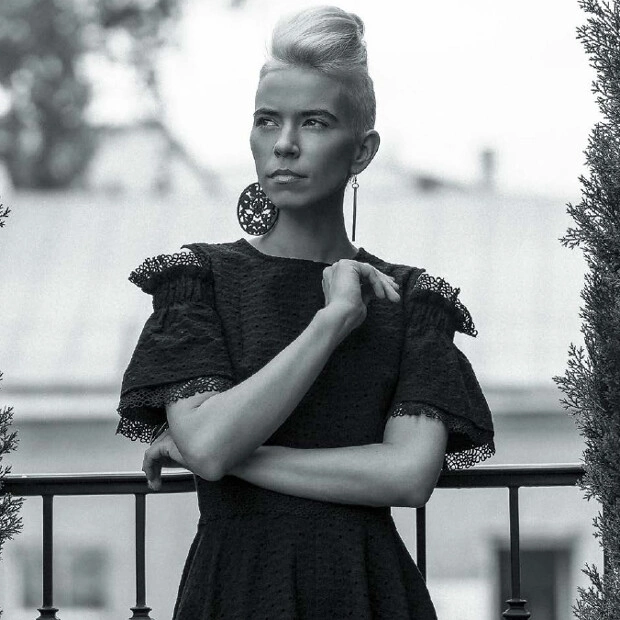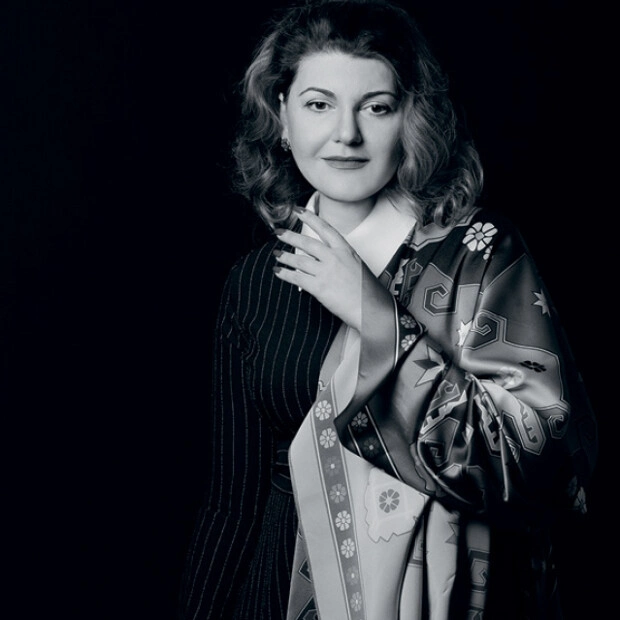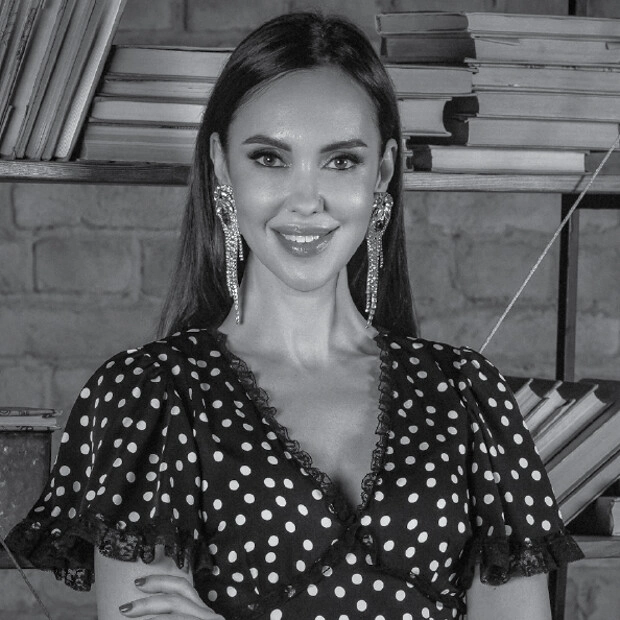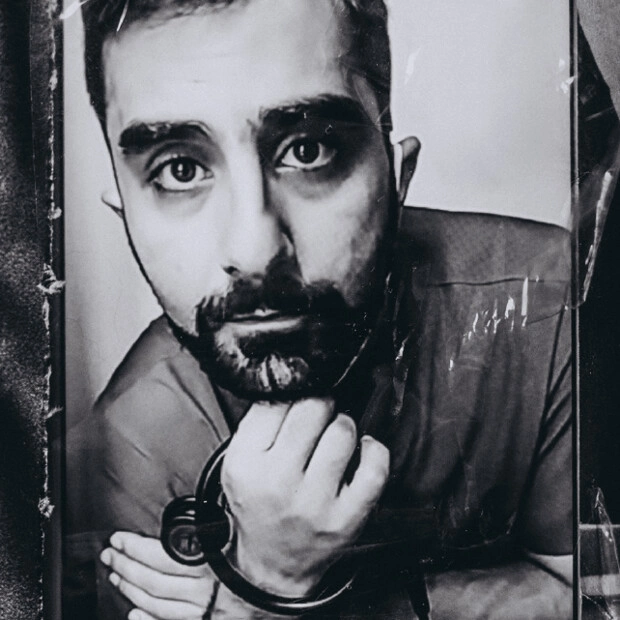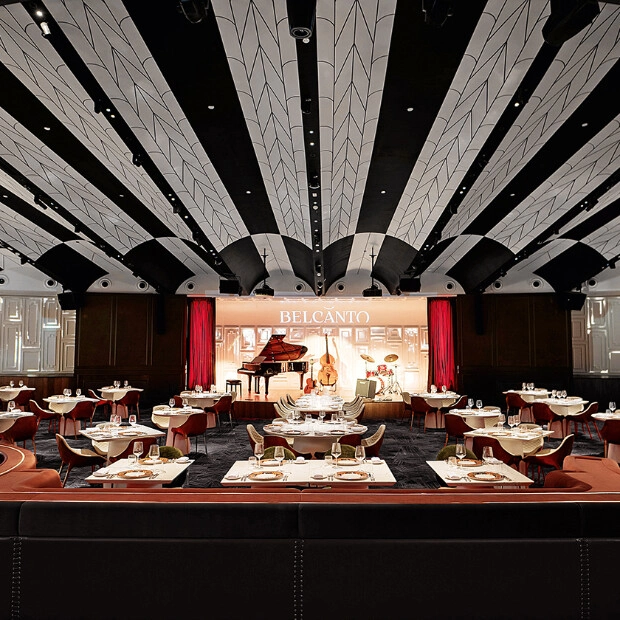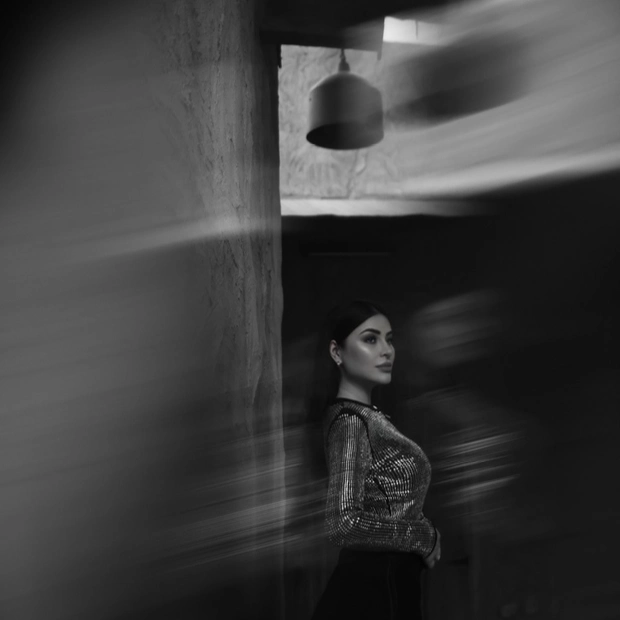The Most Important of the Arts is not Cinema!
Dubai is one of the most rapidly developing cities on the planet. It is creating an environment where people want to live and invest. The leaders of the NORT.DESIGN studio, Alexey Kuratchenko and Roman Chertkov, shared their story of how they managed to establish an architectural and design business there.
Roman Chertkov: Dubai is undoubtedly one of the most dynamic cities on the planet today, attracting not only tourists but also those seeking work, business opportunities, and an escape from the winter chill. It's a place where an environment is being shaped that inspires both living and investing.
Alexey Kuratchenko: Our first experience working in Dubai was about a decade ago when a client requested that we design and implement an apartment project. It's a fairly standard situation in our profession. By that time, we already had experience working in European countries, but no projects completed in Dubai. We developed the design, arrived, supervised, and built. However, along the way, we encountered all sorts of pitfalls, from working with local teams to the peculiarities of local regulations and meeting deadlines. It was a painful but invaluable experience.
Roman Chertkov: Inevitably, when starting something new, surprises will arise — both good and not so good. The key is to approach them sensibly and factor them into your plans. As in film production, numerous factors influence the process, timelines, and final result. And it's crucial to get the engine running. Sometimes you desperately want to reshoot a scene, but the project is underway, and schedules are mapped out. It becomes impossible to stop because so many resources and participants are involved. You need to act precisely to capture everything in the first take. This can create certain limitations but helps maintain the necessary pace.
Alexey Kuratchenko: In general, Dubai has done a great deal to ensure people's convenience and comfort. It's one of those cities where technology is actively used to enhance the quality of life. Many daily processes have been greatly simplified through the introduction of IT systems, occurring online or taking minimal time. Here, registering a car takes half an hour. Airport queues are kept to an absolute minimum: electronic systems read the number of passengers, and the required number of staff come to the terminals. To pass through passport control, you simply need to look into the camera. However, the formal procedures for approvals, obtaining permits, and the order of admission to a site are quite complex and even confusing. There's a joke in Dubai that renovation doesn't start with choosing tiles but with a marathon of collecting permits. If everything goes smoothly, you can consider that the first stage of the renovation.
Roman Chertkov: In Dubai, we encountered an entirely new type of request from clients. Many people here purchase apartments not for permanent residence but as investment properties, with the option of comfortable vacations there for themselves and their families. It's necessary to carefully find a balance between costs and the effect of those costs. It's important that every dirham invested brings maximum benefit. The walls need to earn their keep. It's like choosing options when buying a car: sometimes you want to tick all the boxes if the budget allows. But that's only fine until you think about reselling later. When it comes to investment projects, you have to consider how rational the costs are and how they will affect liquidity.
Alexey Kuratchenko: Yes, properties are often evaluated in terms of their commercial appeal. As a rule, we're interested in participating in development projects that are in good locations, where a high standard is expected, and where the costs of expensive design are justified.
Roman Chertkov: Design, budget, deadlines, and quality. These components are important not only in Dubai, but they are especially relevant here because construction in the UAE is no longer about the dream home but about the product. It's no secret that, with rare exceptions, the quality of finished interiors from the developer significantly lags behind the level of the building's public spaces and the surrounding area. Therefore, after purchasing a property, the next step is the task of improving or renovating it.
Alexey Kuratchenko: The topic of flipping or buying properties with the aim of renovating and reselling them, is very much in demand and popular now. And competition, by the way, is very high among both designers and contractors. And the price offered is not always the determining factor when choosing them.
Roman Chertkov: The finishing work market is structured in such a way that the scheme familiar to us, where a team of 5-10 people performs all the work on a turnkey basis with the involvement of separate related subcontractors, does not work here. Such a team simply would not survive here and would drop out of the market. Teams that work effectively are usually international, with a set of highly skilled narrow specialists. There is a justified distrust of local crews, but among workers from India and Bangladesh, there are excellent tilers, carpenters, electricians — they just need to be filtered and their skills polished. They are diligent, undemanding, and resilient, while their labour costs less on the market. But they must definitely have an experienced all-round foreman above them. He is responsible for the overall organisation of work, site management, and quality control.
Alexey Kuratchenko: We have formulated for ourselves a conditional concept of five-star design and now, figuratively speaking, we are installing rooms from luxury hotels into our properties. This concept solves several problems at once. First, it's about durability — hotels are built with long-term operation in mind; they must remain relevant and attractive for a long time. Secondly, it's about spectacle and emotions, because people often want to experience emotions and impressions in a hotel that they don't get at home. And of course, it should be cost-effective and ultimately liquid.
Roman Chertkov: The quality of everything should be at the level of a world-class hotel, where they won't skimp on boilers or mattresses, for example, because later that cost-cutting could prove expensive and generally affect the reputation. Therefore, all appliances and engineering — air conditioners and so on — should be as convenient and reliable as possible.
Alexey Kuratchenko: Our plans now include not only reconstruction and interiors in Dubai but also building houses based on our designs, as we do in other countries. Buying land in Dubai for individual construction is gaining more and more popularity.
Roman Chertkov: If I may share about our partnership, we have known each other practically all our lives and even longer, considering that our parents have been friends since their university days when they studied together at the school of architecture. They even have birthdays one after the other, or more precisely, two days in a row. They start congratulating one, and at midnight, it's non-stop for the other. From childhood, we were surrounded by topics about architecture and design, and the fact that we are the third generation of architects practically left us no chance for another profession.
Alexey Kuratchenko: Yes, we love our work very much; we have a wonderful team that is very focused on results and solving non-standard tasks. By the way, our profession has many unexpected, pleasant bonuses. For example, at passport control, after the question "what do you do for work?" they let you through without unnecessary words when they find out you're an architect.
During our student years, we had a dream to implement a project where it would be possible to disassemble houses brick by brick from different corners of the world and move them to a new place. Imagine a building being dismantled, packed, and moved, say, to Abu Dhabi, to a conventional Cultural District. There, a quarter with authentic architecture is created, like an open-air museum. Residential buildings, hotels — everything down to the smallest details. Tourists and students could immerse themselves in the atmosphere of real Europe without leaving Dubai. Not just a theatrical fair, like Global Village, but something authentic. And every stone there is not just a stone, but a real stone with a history (possibly even with its own ghost). I think that in the Emirates, this dream could well become a reality.
Roman Chertkov: I also now remember one competition project where we developed a concept in New York, long before the spread of artificial intelligence and widespread computerization. Imagine a huge rotating screen on a magnetic cushion, hanging over the water opposite the UN building. The idea was that inside was a computer that read and displayed vital global indicators in real-time on a large screen. How much oxygen is left on the planet, for example, or how dangerous global warming is, or even how much the global political situation has worsened. In this way, the people responsible for the well-being of the planet would always know exactly about its condition. And everyone around would know that they know!
Alexey Kuratchenko: According to the concept, the data cannot be faked; it is objective. So that everyone can see exactly when it's time to start worrying or take urgent measures. The computer would process and show this live. Time passes, resources dwindle. And the scales do not go from bottom to top, but the other way around, and dark matter gradually absorbs the screen, enhancing the dramatic effect.
Roman Chertkov: We even joked that this autonomous structure could outlive humanity and remain untouched on the island, as a reminder of a bygone civilization. Interestingly, in 1999, there really were plans to bury a time capsule in this place (apparently with instructions on how to restore the internet).
Alexey Kuratchenko: Recognition for an architect is a crucial aspect, manifested in competition wins or client gratitude. When you create something, you want to see the emotions of the people to whom it is valuable.
When you're on your path, at some point, borders open up, and each new city brings its own impressions and experiences. It broadens your horizons, allows you to see the world from different angles. You begin to appreciate diversity and find beauty in the most unexpected places. This state of freedom becomes a part of you. In the end, you realise that home is not so much the place where you live, but a state that makes your life richer and more interesting. Filled.
